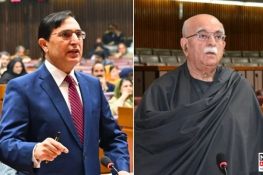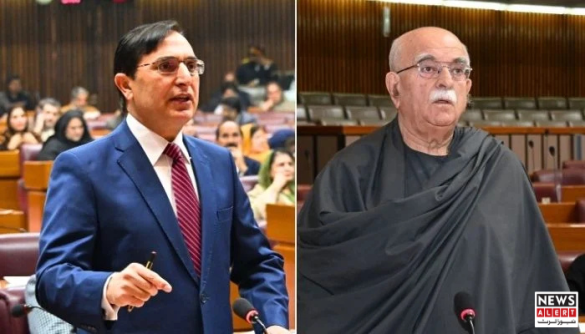Surprise Inspections Spark Action
Pakistan’s Interior Minister Mohsin Naqvi has directed urgent reforms in the country’s National Database and Registration Authority (NADRA) and passport offices after taking notice of widespread public complaints.
During an unannounced visit to the Kot Abdul Malik NADRA Centre and the Shahdara Passport Office in Lahore, the minister personally reviewed the difficulties citizens face in obtaining national identity cards, passports, and related documents. His visit revealed several inefficiencies that have long frustrated applicants.
Complaints of Delays and Technical Failures
At Kot Abdul Malik, the minister found the NADRA centre closed. Only two mobile registration vans were serving hundreds of applicants. Citizens reported repeated system breakdowns, especially due to unreliable internet connectivity.
Applicants also complained about the helpline, saying it offered little guidance and often redirected them back to already non-functional centres. Many said they were forced to make multiple trips, wasting both time and money.
The minister expressed strong displeasure over these issues. He ordered immediate restoration of internet services and directed that the closed centre be reopened without delay. He also stressed that facilities available at one office must not be denied to citizens and that unnecessary referrals to other centres were unacceptable.
Push for Digital Transformation
During his visit to the Shahdara Passport Office, Minister Naqvi raised concerns over outdated processes. He observed that the office was still operating with paper-based files and manual record-keeping, slowing down services for applicants.
Calling the practice “inefficient and obsolete,” he ordered all passport records to be digitized. He further instructed officials to ensure the timely delivery of passports to citizens, noting that delays in issuance directly affect international travel, overseas employment, and education opportunities.
New Policy for Children of Overseas Pakistanis
In a significant announcement, Naqvi revealed that a new passport policy for children of overseas Pakistanis is being developed.
Currently, many families living abroad face procedural hurdles when applying for passports for their children, often requiring repeated visits to Pakistan or embassies. The new policy, according to the minister, will aim to provide “a swift and effective solution” to ease this long-standing problem.
A Broader Context of Public Service Challenges
NADRA, Pakistan’s central identity registration authority, processes millions of ID card applications each year. Recently, it also expanded its services by introducing online birth and death registration, making essential documentation more accessible to citizens.
The agency also plays a vital role in passport services, voter registration, and government welfare programs. However, it has often come under criticism for long queues, technical glitches, and inconsistent service standards.
Passport issuance is another area where delays have sparked frustration. According to official figures, Pakistan issues more than two million passports annually, yet many applicants continue to report weeks-long delays in receiving their documents.
These inefficiencies have wider consequences. For example, overseas employment contributes over USD 30 billion annually in remittances, and delays in passport processing can affect workers scheduled to travel abroad.
Government’s Commitment to Reform
By conducting surprise visits, Mohsin Naqvi has signaled a hands-on approach. His directives — from restoring internet services at NADRA centres to modernizing passport offices — are intended to reassure citizens that their concerns are being heard.
Observers note that while these reforms are promising, implementation will be the true test. Many past attempts at improving NADRA and passport services have faltered due to bureaucratic inertia and lack of accountability.
Conclusion
The Interior Minister’s intervention highlights the urgent need to modernize Pakistan’s public service delivery. Digitalization, improved connectivity, and citizen-focused policies could reduce the daily struggles millions face in securing essential documents.
For now, applicants will watch closely to see whether these promised reforms translate into faster, more reliable services — or whether complaints will persist despite high-level attention.















